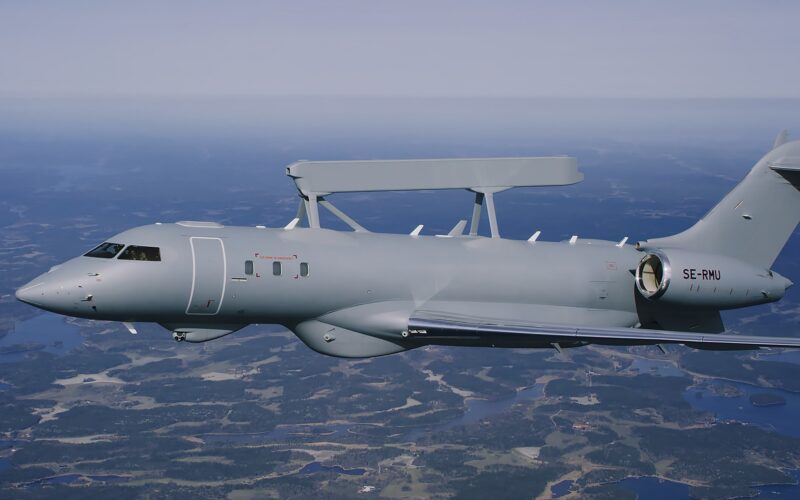Saab offered the GlobalEye surveillance aircraft as a potential replacement for NATO’s AWACS fleet.
Launched in 2016, the Alliance Future Surveillance and Control (AFSC) program aims to study and develop NATO surveillance capabilities, primarily to replace the aging fleet of AWACS (Airborne Warning and Control System) aircraft.
Currently, the NATO AWACS fleet comprises 14 Boeing E-3A Sentry aircraft based in NATO Air Base (NAB) Geilenkirchen, Germany. Their service life is set to end around 2035 after 50 years of operation.
The AFCS approach may include a combination of manned and unmanned air, ground, maritime, and space systems that could work together and share information.
On February 21, 2023, the Swedish manufacturer announced it had answered the Request for Information (RFI) from NATO’s Support and Procurement Agency, offering its GlobalEye aircraft as a manned airborne surveillance platform.
“Saab is a proven and trusted part of NATO’s defence industrial base and we are present in more than two thirds of the member nations,” said Carl-Johan Bergholm, head of Saab´s Surveillance division. “Our solutions, including GlobalEye, are from the outset developed to be compliant with NATO’s requirements. I am confident that we can contribute with important capabilities that will strengthen NATO and benefit the member countries.”
While manufactured by Saab, the GlobalEye Airborne Early Warning and Control (AEW&C) aircraft is actually based on the Canadian-made Bombardier Global Express 6000 business jet. The aircraft features the Erieye Extended Range radar, which has a range of more than 550 kilometers and is capable of early warning and control over air, sea, and land.

